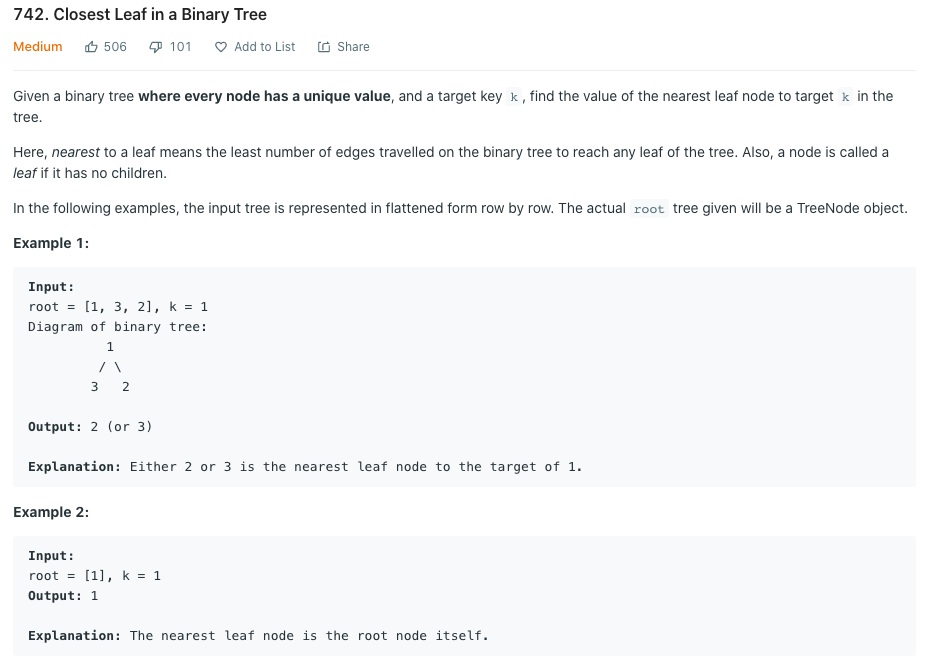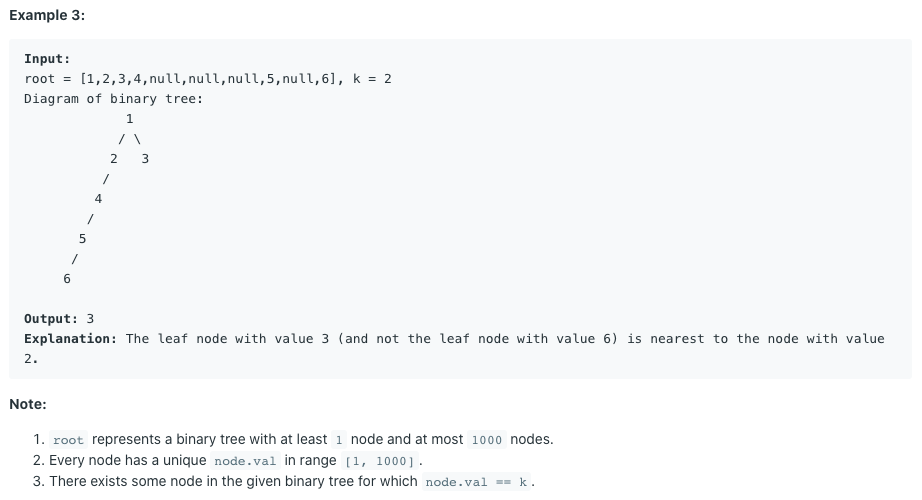Leetcode 742. Closest Leaf in a Binary Tree


solution
- 第一种方法考虑使用gragh和dfs,对每一个结点建立一个[currentNode, ParentNode, LeftNode, RightNode]的adjecent matrix
- 找到val=k的node,使用bfs的方法遍历与之相连的结点,找到第一个left==null && right==null的结点即为我们想要的结果
/**
* Definition for a binary tree node.
* public class TreeNode {
* int val;
* TreeNode left;
* TreeNode right;
* TreeNode() {}
* TreeNode(int val) { this.val = val; }
* TreeNode(int val, TreeNode left, TreeNode right) {
* this.val = val;
* this.left = left;
* this.right = right;
* }
* }
*/
class Solution {
//create a graph, foe each node it has a list contains its adjacent nodes(每一个结点只记录与之相邻的结点,最多就3个,parent,left,right)
//since the value of node is unique, we take the value as the key
private Map<Integer, List<TreeNode>> graph = new HashMap<>();
public int findClosestLeaf(TreeNode root, int k) {
if(root == null)
return -1;
//dfs create graph
dfs(root, null);
//bfs find the nearest leaf node
LinkedList<TreeNode> queue = new LinkedList<>();
HashSet<TreeNode> memo = new HashSet<>();
//push node with value k into the queue
queue.addLast(graph.get(k).get(0));
while(!queue.isEmpty()){
TreeNode cur = queue.removeFirst();
if(memo.contains(cur))
continue;
memo.add(cur);
//[Node, parent, left, right] traverse from parent Node
for(int i = 0; i < 4; i++){
TreeNode tempt = graph.get(cur.val).get(i);
if(tempt == null)
continue;
else if(tempt.left == null && tempt.right == null)
return tempt.val;
else
queue.addLast(tempt);
}
}
return -1;
}
private void dfs(TreeNode node, TreeNode parent){
int value = node.val;
if(!graph.containsKey(node.val))
graph.put(node.val, new ArrayList<TreeNode>());
List<TreeNode> matrix = graph.get(node.val);
//[Node, parent, leftNode, rightNode]
matrix.add(node);
matrix.add(parent);
matrix.add(node.left);
matrix.add(node.right);
if(node.left != null){
dfs(node.left, node);
}
if(node.right != null){
dfs(node.right, node);
}
}
}
